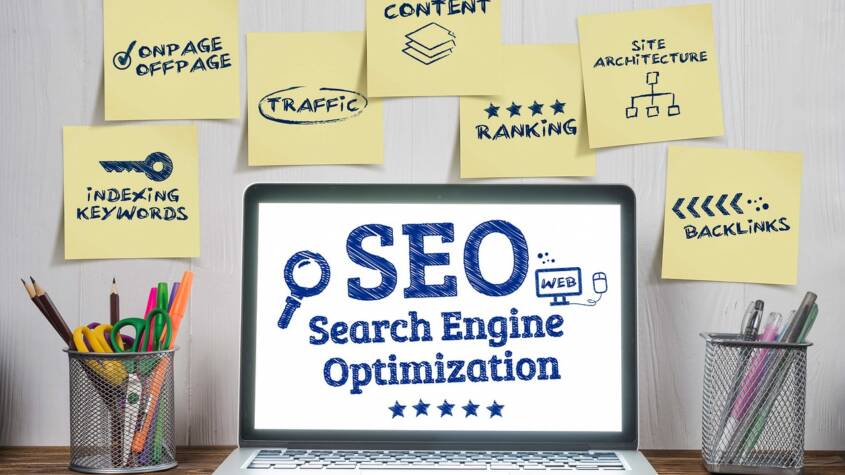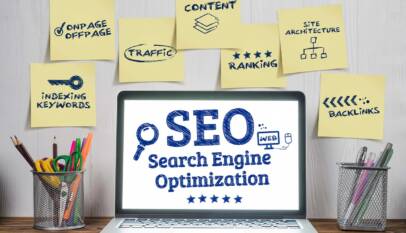
Finding reliable SEO services near me can streamline the process of improving a website’s search engine ranking and online visibility. Many local agencies offer tailored SEO strategies that understand the specific market and audience dynamics of the area. Local SEO services combine technical expertise with regional knowledge to deliver more relevant results for nearby businesses.
Choosing a nearby provider often means better communication and faster response times. It allows businesses to build stronger relationships with experts who understand local trends and customer behavior. This can result in more effective, customized SEO efforts that align closely with business goals.
Understanding SEO Services Near Me
Local SEO services focus on improving a business’s visibility in specific geographic areas. These services include optimization strategies tailored to nearby customers and varying approaches compared to general SEO efforts.
Why Local SEO Matters
Local SEO helps businesses attract customers who are searching for services or products within their immediate area. It increases the chances a business will appear in local search results, such as Google Maps or localized search queries.
This improves foot traffic, phone inquiries, and online orders from local consumers ready to buy. For small and medium businesses, prioritizing local SEO is crucial for competing against larger companies with broader advertising budgets.
Types of Local SEO Services
Key local SEO services include optimizing Google My Business profiles, managing online reviews, and ensuring NAP (Name, Address, Phone) consistency across directories. Local keyword research also targets location-based search terms to match consumer intent.
Other services involve creating localized content, building citations on local business websites, and implementing schema markup to help search engines understand geographic relevance. These strategies improve local search rankings and user engagement.
How Local SEO Differs From Traditional SEO
Local SEO prioritizes geographic signals such as location keywords, maps, and local listings. Traditional SEO focuses more on global or national keyword rankings, website authority, and broad content strategies.
Local SEO depends heavily on tools like Google My Business and local citations, which do not receive as much emphasis in traditional SEO. It also deals more with reviews and localized user intent, which affects search results differently than traditional SEO.
Evaluating and Choosing Local SEO Providers
Choosing the right local SEO provider involves examining their expertise, asking targeted questions, and understanding how they measure campaign results. These steps ensure the chosen agency aligns with specific business goals and delivers measurable improvements.
Key Criteria for Selecting a Local SEO Agency
A local SEO agency should have a proven track record with businesses in the same industry or location. Experience with Google My Business optimization, local keyword research, and citation building is essential.
Look for transparency in their process, including clear reporting and communication. Verify their understanding of local ranking factors such as proximity, relevance, and prominence.
Check client reviews and case studies for evidence of success. Additionally, ensure the agency uses white-hat SEO techniques to avoid penalties from search engines.
Questions to Ask Before Hiring
Ask about their methods for local keyword targeting and how they optimize Google My Business profiles. Inquiry about their approach to building local citations and handling online reviews is important.
Request details on how often they provide performance reports and what metrics they track. Clarify contract terms, pricing structure, and whether there are any guarantees or minimum commitments.
It is useful to know if they offer tailored strategies aligned with the client’s market size and competition level. Lastly, confirm who will manage the account and their level of expertise.
Measuring the Success of Local SEO Campaigns
Key performance indicators include increases in local search rankings, website traffic from target areas, and growth in Google Maps visibility. Tracking the number of calls or inquiries generated through local search listings is critical.
Review monthly or quarterly reports that include data on click-through rates, user behavior, and conversion rates related to local search. Compare these metrics over time to assess ongoing campaign effectiveness.
Regular monitoring helps identify what strategies work and where adjustments are needed. Measurement should focus on both short-term improvements and long-term growth in local presence.
Kongo Tech Leading Innovation in African Technology Solutions
Kongo Tech specializes in developing innovative digital solutions tailored to African mark…




